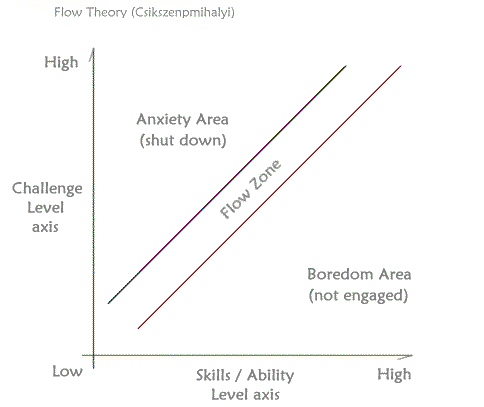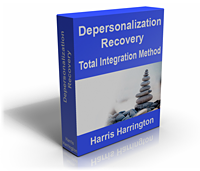Harris Harrington explains how to overcome the obsessional elements of Depersonalization Disorder.
What is obsession?
An obsession is a compulsive thought that is difficult to get out of one’s awareness.
In depersonalization this manifests itself as an almost non-stop focus on the symptoms of DP. Instead of living life and experiencing reality, people with DP and DR focus on the nature of reality, and the nature of their own perception.
Underlying Assumptions of Obsession
One of the underlying assumptions of obsession in DP is that “I must focus on my symptoms because this will help me. I must constantly check in, in order to see if I’m okay”.
The fact is, the more you obsess about your symptoms, the worse you get.
People with DP ask themselves, “do I feel real?”, “does the surrounding environment feel real?” Rumination about the symptoms fuels the feeling itself.
Extrovert your Attention and Practice Diversion
It’s extremely important to fully immerse yourself in life.
Sometimes the key to overcoming one obsession, is to obsess about something else. In fact, many great achievers in the world have an obsessional nature. Anyone who attains mastery in some area is usually obsessed about it. Its not obsession that’s wrong, its what you use your mind to focus on everyday.
In self help literature, they say things like “you get what you focus on”. So with that in mind, the more you obsess about the nature of your symptoms, the more you feel depersonalized and derealized.
Don’t introvert your attention on yourself and on the way you perceive. Instead, focus on something external that requires attention. This external focus gets your mind off yourself and will give you a “break” from DP temporarily.
You may have a fear that “if I don’t check in, something will go wrong”. Remember, you DON’T need to check in on yourself, or see if you “feel real”.
Hypochondriasis and Health Anxiety Obsessions
You may have a hypochondriac fear of developing a psychotic disorder like schizophrenia, or fear that you may have a neurodegenerative disease like multiple sclerosis or ALS. This is where obsession and anxiety intersect.
In order to overcome the anxiety component of DP, you need to have complete confidence in your health. But so many people with DP constantly question their health. The strange sensations of DP are definitely frightening. You may feel out of body experiences, or feel that your breath is strange. You start thinking about everything that had previously been an automatic behavior, and think about it in a strange existential way.
If you need to visit a doctor and get medical tests so that you can confirm that you are healthy, then that may be the best course of action. Just remember, people with health anxiety often don’t believe doctors. If you get medical testing done, at some point you have to believe your doctor.
Purely Obsessional OCD and Depersonalization Disorder
There is actually a name for constant obsession about existential, philosophical, and religious issues. Its called Purely obsessional OCD, also known as “Pure-O”. In fact, as many as 50-60 percent of people with OCD have Pure-O without compulsive actions like handwashing. Many people with DP also have Pure-O, or elements of it. This doesn’t mean you have to suffer forever.
The problem with constant existential obsessions is that people who engage in them often think that MORE obsession is the answer to their problems! Often times it isn’t recognized as a problem. But I assure you, ruminating about the nature of existence, the symptoms of DP, and focusing on yourself will only keep DP going and increase the strange sensations.
The Problem of Thought Suppression
Thought suppression studies have shown that if you try to NOT think about something, that only increases the focus on that thing. The classic example of this is to “not think of a pink elephant”. By doing so, you are going to increase the appearance of pink elephant related thoughts.
Fear of unwanted thoughts is usually something that goes along with thought suppression. By labeling a certain thought as dangerous, you increase the emotional salience of the thought. It’s important to view DP related thoughts as boring and unimportant. Allow them to arise, and then refocus on what you are doing in your life.
Acceptance of Intrusive Thoughts
Instead of resisting thoughts, and trying not to have them, you should have a nonjudgmental stance towards them. If an obsessive thought of DP arises, just relax and allow the thought to pass. You can’t control every thought you are having. Once you non-judgmentally become mindful of the thought, divert your mind back to whatever you were doing, or whatever needs to get done. When you are engaged in an activity like reading, or playing a team sport, these unwanted thoughts will quickly dissolve.
Acceptance is not about resignation or “giving in” to DP, it’s simply about experiencing the symptoms of DP, the intrusive thoughts, the weird sensations, without internally fighting them. Even though it feels like you can “think your way” out of the disturbing symptoms, you can’t.
Attaching Emotional Significance to a Thought Increases Obsession
View symptoms of depersonalization as unimportant and boring. If you view them as truly threatening to you, then you will focus on them, be frightened of them, and perpetuate the cycle of self focused obsession.
Mindfulness Meditation
I urge you to practice 20 minutes of meditation every day.
All you have to do is sit in a chair, and look at a wall for 20 minutes. While you do this, be observant of yet non-judgmental toward every thought that might pop up, or every feeling that appears for you. Become mindful of these sensations and thoughts as you keep your mind focused on a specific spot on the wall or object on the ground.
Don’t get mad if you have trouble keeping your mind clear. Just allow the thoughts to pass and refocus.
Auditory/Visual Distraction Exercise for Eliminating Obsessions
If depersonalization obsessions are particularly persistent, what you can do is occupy both your sense of hearing, and your vision with things other than thoughts of DP.
Our thoughts consist of images and sounds. So instead of trying “not” to think of DP, you can say a word over and over again, or count backwards from ten.
At the same time, you can fill your vision with something very eye catching and entertaining, like a cartoon.
End Obsession, Process Trauma, and focus on important goals
One of the best way to divert your mind while you are still in your initial stages of recovery, is to journal and process your trauma. Much of my program on depersonalization is based upon a very specific and guided form of traumatic processing.
Many times people experience their first “burst” of reality when they understand what emotional abuse, codependence, emotional repression and trauma really are.
Developing a skill, pursuing a goal, or engaging in a hobby are also ways of diverting the mind from the self.
When you are fully immersed in an external pursuit, especially one in which the challenge meets your level of ability, this is describe as a state of “flow”.
Flow is the antithesis of depersonalization.
Learning a new phrase of a language, playing an equally matched opponent in chess, or just catching a wave while surfing, these are all moments of flow. When you are in a state of flow you aren’t questioning your existence, or asking yourself how you feel. You are totally immersed in the act of living.
Extroverting your awareness on an external pursuit is the best way to end obsession. Learn a language, play a sport, and engage in anything that is a “flow” state. A flow state is when your current ability matches the challenge you are engaged in. Any good teacher knows how to keep their student in state of flow by gradually increasing the challenges so that appropriate learning takes place.
This is also key in getting outside of your head, and getting over self focused obsession.
A classic example is learning how to ride a small wave when you begin surfing. This is a total flow state, a state in which self consciousness ceases, and self growth begins.
It’s ironic that by ending self focused obsession, you actually find your true self. The problem in depersonalization is that we trick ourselves into thinking that if we just focus on our own perceptions, we will somehow come to find our original feeling of self. If you just trust in yourself, start living your life, stop checking in, and start pursuing your goals, you will find that your depersonalization will go away.


